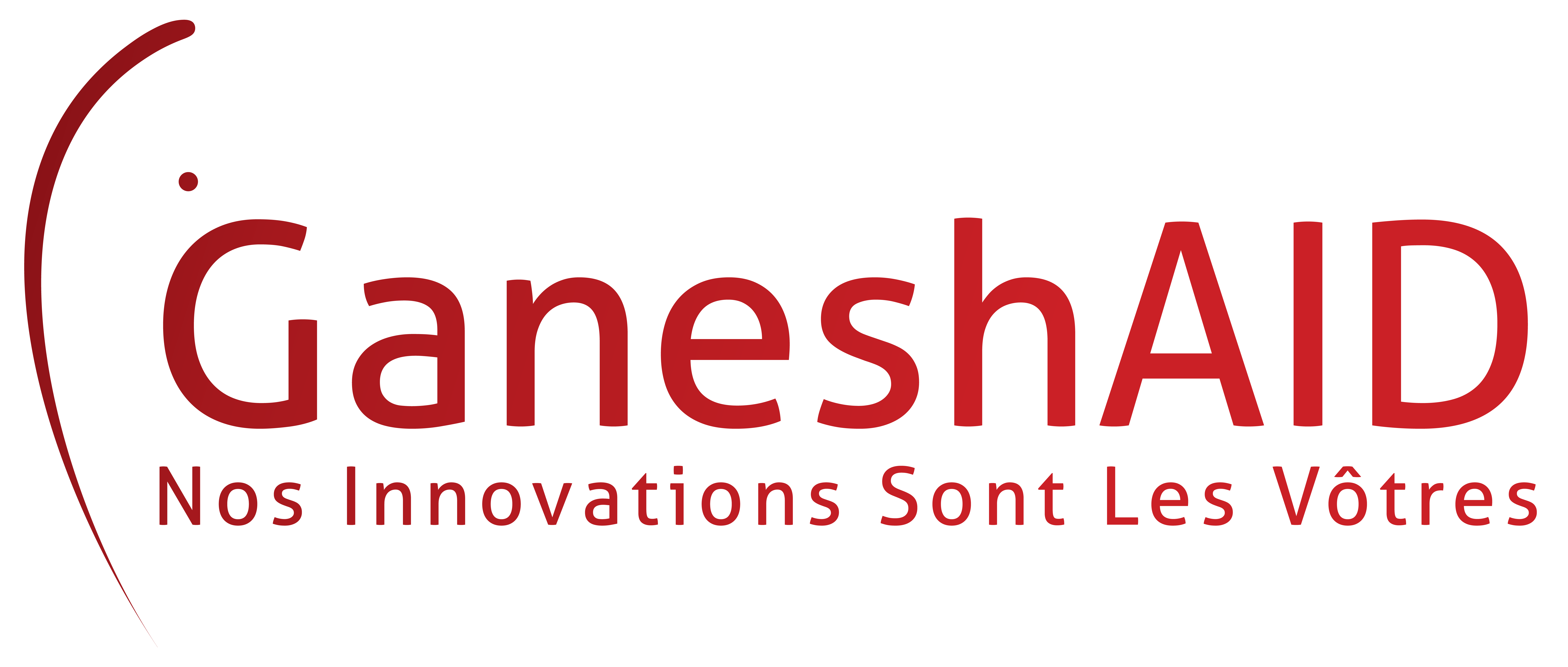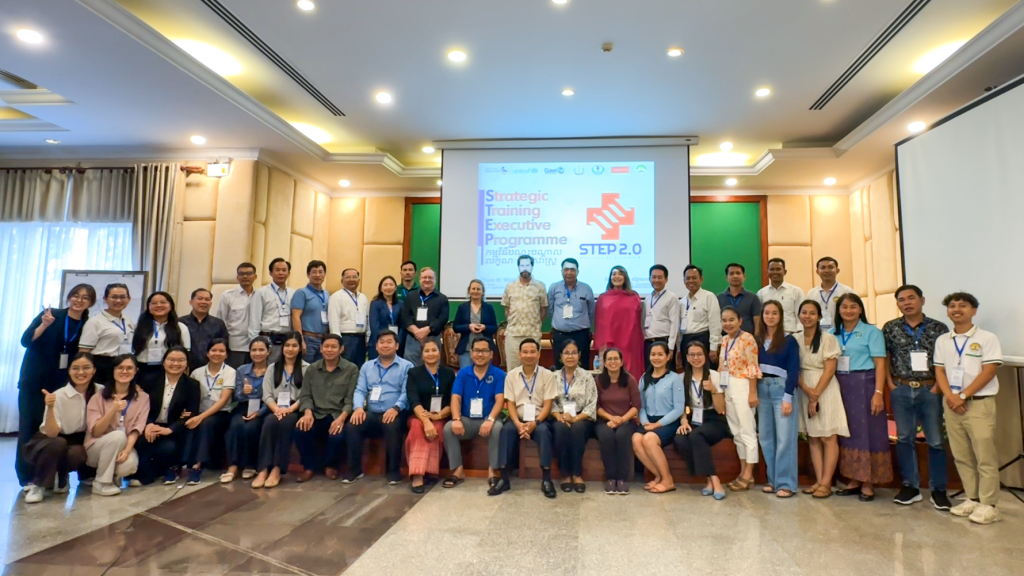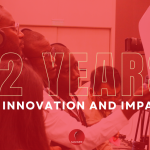In August 2024, STEP 2.0 Cambodia cohort reached its conclusion, capping a far-reaching initiative designed to strengthen the country’s public health supply chains through leadership and transformational change. Funded by UNICEF, coordinated by People That Deliver (PtD) and implemented by GaneshAID, STEP 2.0 Cambodia aimed to sharpen national capacity in managing and leading supply chain transformations in the health sector. Now, as we look back on its implementation and outcomes, the impact of this program extends well beyond the participants and coaches who were directly involved; it resonates throughout Cambodia’s broader public health landscape.
STEP 2.0 Cambodia unfolded in three progressive phases that introduced participants, who are immunization supply chain managers to new ways of thinking, problem-solving, and leading. The initial stages laid the groundwork with theoretical frameworks and best practices, emphasizing strategic engagement and teamwork. By the time participants entered the final phase— the Transformation Challenge—they were ready to apply their knowledge to real-world immunization supply chain barriers. This final leg, spanning April to August 2024, brought together 23 participants and five seasoned coaches to identify pressing obstacles in their daily work. Drawing on Kotter’s model for change, participants reframed these obstacles as “transformation challenges,” then devised practical, actionable plans to overcome them.
GaneshAID’s technical guidance played a pivotal role throughout these phases by weaving innovation and human-centered methods into the learning process. The program’s emphasis on adaptive implementation, coaching, and local ownership encouraged participants to move well beyond theory. They were asked to experiment, reflect, and collaborate in ways that integrated operational realities with overarching strategic goals. This blend of theory and practice cultivated leaders who are not just capable of managing supply chains, but of transforming them from within.
At the conclusion of the program, structured feedback through surveys were collected. The responses highlighted the widespread value that STEP 2.0 Cambodia offered to both participants and coaches. Over 80% of participants clearly understood the guidance provided in the final phase. While a few suggested more specific guidance on applying Kotter’s model and more frequent coach check-ins, they emphasized that regular feedback would have further enhanced engagement and strategy development. Overall,, most participants described the program as a worthwhile investment of their energy and found that the experience strengthened their problem-solving skills, leadership confidence, and capacity to handle complex supply chain challenges.
Among the most compelling indicators of STEP 2.0’s success are the reflections of participants themselves:
“The knowledge gained from this training is used to identify problems related to supply chain management and to set appropriate directions.”
— Phon Channy, National Immunisation Programme (NIP)
“I gained new skills and abilities to implement change that can be used quickly, short-term and with real success, help improve and grow well.”
— Chhar Channy, NIP
“This course has helped ensure that the supply of vaccines and equipment to district offices, operations, and health centres aligns with national policy.”
— Pal Dary, Provincial Health Department – Kampong Chhnang
“The STEP 2.0 programme should be expanded to all provinces throughout Cambodia.”
— Thun Soda, Provincial Health Department – Kratie
Their testimonials reveal how leadership skills and tools can be immediately applied, whether in planning, team supervision, or broader strategic initiatives. The call to expand STEP 2.0 across Cambodia underscores the universal relevance of these principles in different provincial contexts.
The five coaches who guided participants noted how the challenge-based approach fostered deeper engagement and practical learning. From their vantage point, the program’s real triumph emerged when theoretical frameworks translated into daily management routines, reinforcing how adaptive leadership can reshape complex systems. Yet these coaches also saw room for improvement, particularly in providing more user-friendly reporting tools and adjusting the program to participants’ evolving needs.
In its role as the implementing partner, GaneshAID was integral to every aspect of program design. By emphasizing innovation, systems thinking, and user-centered methodologies, GaneshAID ensured that the training was not just theoretical but also delivered an environment where participants could practice and refine new approaches. Through adaptive implementation, participants were guided to test and refine their methods in real time, fostering leadership rooted in practical application and sustained by local ownership. This blend of coaching support and iterative learning allowed participants to take bold steps toward modernizing public health systems from within.
Looking ahead, the lessons from STEP 2.0 Cambodia carry important implications for future health system strengthening across the country. By weaving leadership development directly into supply chain processes, the program illustrates how effective managers can evolve into agents of systemic change. Calls to expand STEP 2.0 to other regions underscore its potential to foster a broad network of mentorship and support. Ongoing coaching, open communication channels, and local involvement will be key to sustaining the momentum generated during this final phase.
Ultimately, the greatest legacy of STEP 2.0 Cambodia lies in the transformation it inspired—in individuals, institutions, and the broader approach to leadership across the health sector. The program has cultivated a new generation of health leaders who possess the confidence and capability to tackle complex supply chain challenges. By championing innovation, collaboration, and adaptable leadership, STEP 2.0 has illuminated a path for transformative health systems—proving that meaningful change is not just possible, but well within reach.


